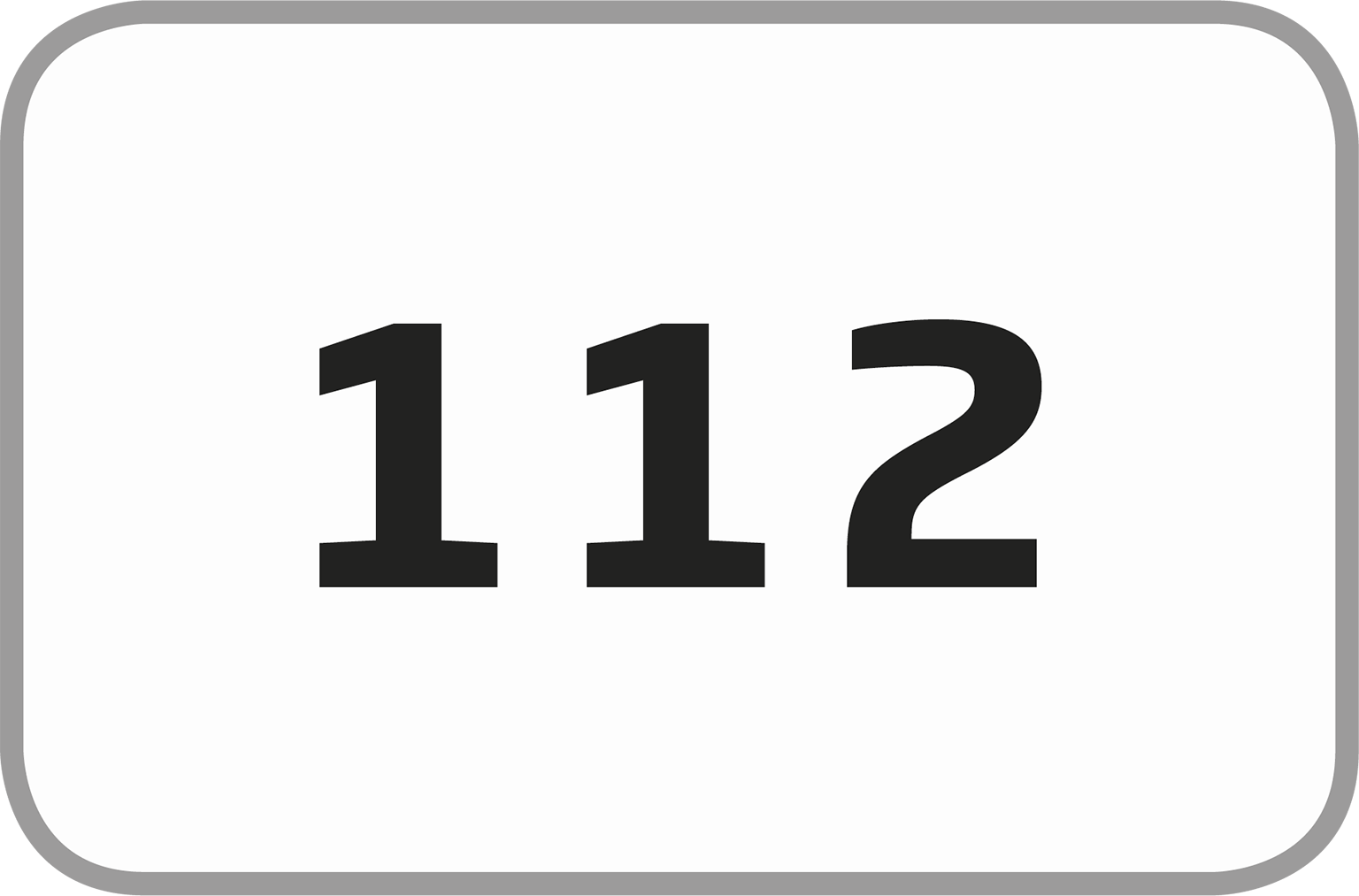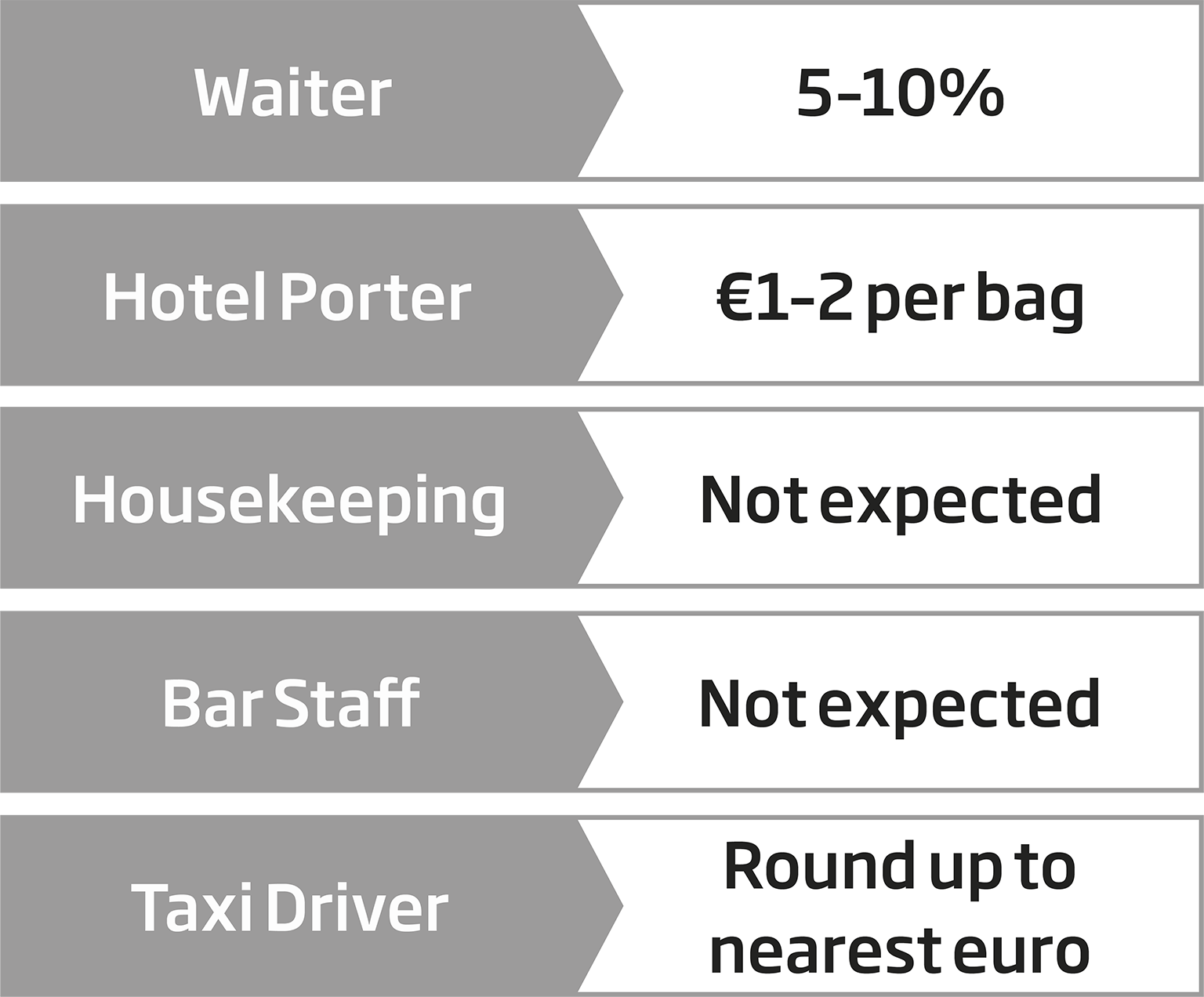EMERGENCY NUMBERS
GENERAL EMERGENCY

g Need to Know g Contents
A little local know-how goes a long way in Seville and Andalucía. Here is all the essential advice and information you will need during your stay.
Violent crime is rare in Andalucía, but pickpocketing is common in the major cities. Take particular care on crowded transport, at stations, markets and the big-name sights, and wear bags and cameras across your body. Contact your embassy if you have your passport stolen, or in the event of a serious crime.
Seek medicinal supplies and advice for minor ailments from a pharmacy (farmacia), identifiable by a green or red cross. Each pharmacy displays a card in the window showing the address of the nearest all-night pharmacy.
Emergency medical care in Spain is free for all EU citizens. If you have an EHIC, present this as soon as possible. You may have to pay after treatment and reclaim the money later.
For visitors coming from outside the EU, payment of medical expenses is the patient’s responsibility, so it is important to arrange comprehensive insurance before travelling.
Smoking is banned in enclosed public spaces and is a fineable offence, although you can still smoke on the terraces of bars and restaurants.
Spain has a relaxed attitude towards alcohol consumption, but it is frowned upon to be openly drunk. In cities it is common to drink on the street outside the bar of purchase.
Recreational drugs are illegal, and possession of even a very small quantity can lead to an extremely hefty fine. Amounts that suggest an intent to supply drugs to other people can lead to custodial sentences.
By law you must carry identification with you at all times in Spain. A photocopy of your passport should suffice. If stopped by the police you may be asked to report to a police station with the original document.
A famous Spanish tradition is the siesta, which sees many shops closing between 1pm and 5pm. This is not always observed by large stores or in very touristy areas.
Corridas (bullfights) are widely held in Andalucía. Supporters argue that the bulls are bred for the industry and would be killed as calves were it not for bullfighting, while organizations such as the ADDA (Asociación Defensa Derechos Animal) say that it’s cruel and organize protests throughout the country. If you do decide to attend a corrida, bear in mind that it’s better to see a big-name matador because they are more likely to make a clean and quick kill. The audience will make their disapproval evident if they don’t.
ADDA
∑ addaong.org
Spain retains a strong Catholic identity. Most churches and cathedrals will not permit visitors during Sunday Mass. Generally, entrance to churches is free, however a fee may apply to enter special areas, like cloisters. When visiting religious buildings ensure that you are dressed modestly, with knees and shoulders covered.
Free Wi-Fi is reasonably common in Spain, particularly in large public spaces, restaurants and bars. Some places, such as airports and hotels, may charge for you to use their Wi-Fi.
Visitors travelling to Spain with EU tariffs are able to use their devices abroad without being affected by roaming charges. Users will be charged the same rates for data, calls and texts as at home.
Correos is Spain’s postal service. Postal rates fall into three price bands: Spain; Europe and North Africa; and the rest of the world. Parcels must be weighed and stamped at Correos offices, which are open 8:30am–9:30pm Monday to Friday (outside the cities they close by 1–2pm on weekdays) and 9:30am–1pm on Saturday.
Letters sent from a post office usually arrive more quickly than if posted in a buzón (postbox). In cities, buzóns are yellow pillar boxes; elsewhere they are small, wall-mounted postboxes.
Correos
∑ correos.es
IVA (value added tax) in mainland Spain is normally 21 per cent, but with lower rates for certain goods and services.
Under certain conditions, non-EU citizens can claim a rebate of these taxes. Retailers can give you a form to fill out, which you can then present to a customs officer at your point of departure. If the shop offers DIVA, you can fill that form out instead and validate it automatically at one of the self-service machines found at Spain’s main ports and airports.
Some cities offer a visitor’s pass or discount card, such as the Sevilla Card. This can be used for free or reduced-price entry to exhibitions, events and museums, and even discounts at participating restaurants. These are not free, so consider carefully how many of the offers you are likely to take advantage of before purchasing a card.
need to know Practical Information
GENERAL EMERGENCY

Need to know Practical Information

CET/CEST: Central European Summer time (CEST) runs last Sunday in March to last Sunday in October.
Need to know Practical Information

Tap water in Andalucía is safe to drink unless stated otherwise.
Need to know Practical Information
Spain does not have a big tipping culture, but it is appreciated and it’s common to round-up the bill.

Need to know Practical Information
|
Andalucía |
|
Offers infomation from Andalucía’s tourism board (www.andalucia.org). |
|
España |
|
Spain’s official tourism website (www.spain.info). |
|
Moovit |
|
A route-planning app. |
|
WiFi Map |
|
Finds free Wi-Fi hotspots near you (www.wifimap.io). |